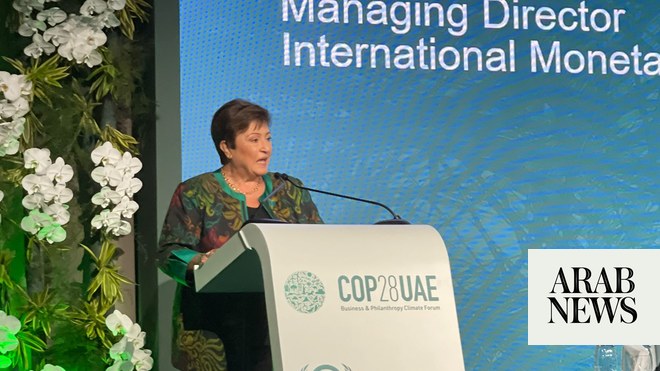
Very weak Iraqi Prime Minister and Commander in Chief Mustafa Al-Kadhimi is under immense pressure from forces under his command — well, under his command on paper. These forces fall into that category in name only; they are loyal to Tehran in their words and actions and they are free to do whatever they want in Iraq. They are killing protesters, attacking the US mission, and attacking Saudi Arabia and Israel with impunity. Their actions are now reaching boiling point.
This force is the Popular Mobilization Forces (PMF), also known as Al-Hashd Al-Sha’abi. The Hashd is a grouping of militias under the umbrella command of Vilayat-e Faqih loyalists Hadi Al-Amiri and Abu Fadak. They have rockets, missiles and drones supplied by Iran and have built weapons factories to arm the resistance and attack US allies in the region.
Who is Al-Amiri? He is the commander of the Badr Corps, commander of the Hashd and leader of the Fatah Alliance — the largest voting bloc in the Iraqi Council of Representatives. This is his latest statement and it is alarming that this man, with so much power and who is answerable to the prime minister, can openly threaten Al-Kadhimi and do so without consequence. He said: “PM Kadhimi monopolizes power & is a dictator. The illegal arrest of PMF commander yesterday shows he wants to hurt the respect for PMF & the nation.”
Al-Amiri’s statement was made following last week’s detention of Qassim Musleh. Musleh is the leader of a militia responsible for conducting attacks against Iraqis and the US mission in Iraq. Multiple reports indicate Musleh has been released to Al-Amiri and Fadak after militias surrounded Al-Kadhimi’s office and demanded he be turned over to the Hashd command.
Who is Fadak? He replaced the designated terrorist killed alongside Qassem Soleimani, the commander of Iran’s Quds Force, in a US drone strike in January last year. That man killed alongside Soleimani was Abu Mahdi Al-Muhandis, the commander of Kata’ib Hezbollah and deputy commander of the Hashd. Fadak, who is also now a designated terrorist, succeeded Al-Muhandis in both roles.
Iran’s premier proxies dominate the Hashd command and control 100,000 militiamen. They use visible force and threats to insist Al-Kadhimi does what they say — and does so always. As long as they continue to have primacy, every future prime minister will also do what they say.
Al-Kadhimi is powerless to say no to Tehran’s proxies. Not only are these loyal proxies powerful, they control the Council of Representatives. Isn’t that crazy? Iran’s Iraqi militias in the Fatah Alliance formed the largest voting bloc by allying with former Prime Minister Nouri Al-Maliki’s State of Law coalition to form the Al-Bina’a group. The members of this alliance are so brazen in their power and control of Baghdad that they wear suits when voting to condemn the US and call for its expulsion from Iraq, and fatigues when killing Iraqis and attacking American positions.
Iran’s militias have primacy over Iraq’s legislative body and its internal security. These militias operate with impunity and kill Iraqis through the placement of Fatah and Badr operatives in the security ministries. The security ministries stand down or facilitate militia attacks, while officials in Baghdad delay any response and attempt to obfuscate the Hashd’s role in these attacks.
The cancer that is ensuring Iraq’s future looks like the chaos in Syria, Lebanon and Yemen is spreading. It is the major threat to Iraqis, the US mission in Iraq and US allies in the region. It does Iran’s bidding and is helping Tehran get all it can from the Biden administration in Vienna, where talks to lift US sanctions on Iran as part of the nuclear deal are ongoing.
The Hashd, not Daesh, is the biggest threat to Iraq’s security, economy and sovereignty. This protected group owns the Iraqi government, even while being opposed by 80 percent of the Iraqi population. This is how Kata’ib Hezbollah, Asa’ib Ahl Al-Haq and Badr openly threaten the prime minister and the US mission in Iraq. This is how they kill Iraqis with impunity.
What can Al-Kadhimi do? Firstly, he can admit he has no sway over the militias and maybe come clean that he is, more often than not, like-minded with them. After all, the militias had to approve Al-Kadhimi for the position of interim prime minister.
We must remember that Esmail Ghaani of the Quds Force and Hassan Nasrallah of the Lebanese Hezbollah both urged Muqtada Al-Sadr and Fadak to get onboard with a nominee that would be no threat to the Iranian proxy network in Iraq. To date, Al-Kadhimi has not disappointed. Well, maybe for the occasional 24 to 48 hours of political theater that, in each case, amplifies and demonstrates the hold the militias have on the government of Iraq. With each release of a militia leader and concession, the militias grow more violent and powerful. With each release and concession, Al-Kadhimi puts good men in the special operations forces in danger of being killed by the militiamen that have saturated the Iraqi security services.
The US cannot share intelligence with the Iraqi government without tipping off the militias due to this infiltration. Washington continues to deny Iran’s influence through the Badr Corps’ hold on the Iraqi security ministries, and it continues to state that Baghdad is a partner against the militias.
The only way to save Iraqis is for the US to stop supporting Baghdad and begin supporting Iraqis.
A statement from State Department spokesman Ned Price, stating that the US continues to support the Iraqi people and the Iraqi government, is at odds with reality. The US cannot continue to support a government that is killing its people — American law does not allow it. That is why the US Department of Defense and State Department continue to blame these killings and attacks on “rogue militias.” Kata’ib Hezbollah, Asa’ib Ahl Al-Haq and Badr are not rogue militias outside government control: They are the militias controlling the government through intimidation, alliances and threats. They do so with Iran’s Quds Force standing right behind them.
The cancer that is ensuring Iraq’s future looks like the chaos in Syria, Lebanon and Yemen is spreading.
Michael Pregent
The US must acknowledge that it has all the leverage in Iraq and with Iran. Iran needs Iraq to stay in good economic favor in order to reap the benefits of its penetration and dominance of Baghdad’s political, military and economic sectors. Iran needs the US to lift sanctions for the regime to survive. It is giving the US all the evidence in its actions that American sanctions are strangling Tehran and that Iraq is a lifeline for the regime: A lifeline the US can cut off with simple and effective Treasury Department designations.
The US should increase sanctions on Iran and enforce them. It should also sanction Al-Maliki for human rights violations, along with Al-Amiri and Badr for facilitating attacks against Iraqis, the US mission in Iraq, Saudi Arabia, and Israel. Nothing happens in Iraq without Al-Amiri’s knowledge or his facilitation thanks to his role as the owner of the space where Iran’s militias operate and conduct attacks.
The Pentagon leaked last week that it is preparing strikes on militia targets for President Joe Biden’s approval as a warning to the militias. The only way to get their attention is to target them without warning and in Iraq. The tactic of targeting empty bases in Syria is not a deterrent. A combination of sanctions, designations and targeted attacks is the perfect balance. This is the only message Tehran and its proxies understand.
Iran does not care if the US targets its Arab proxies in Iraq — it only cares if its proxies in Iraq realize this.
Michael Pregent, a former intelligence officer, is a senior fellow at the Hudson Institute.
Disclaimer: Views expressed by writers in this section are their own and do not necessarily reflect Arab News" point-of-view












